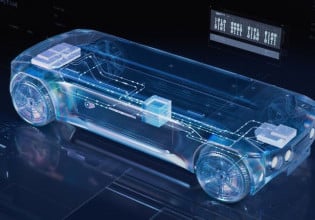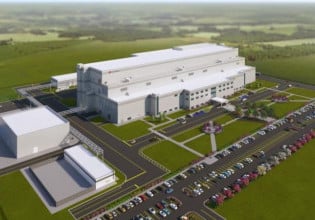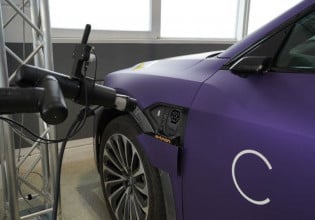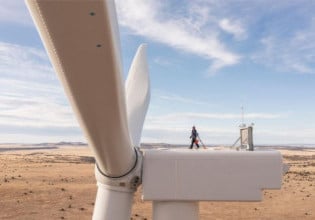Mitsubishi To Enter Li-ion Secondary Battery Business, Launch Commercial Production Verification Plant By Fall 2010
Mitsubishi Heavy Industries, Ltd. (MHI) has decided to build a commercial production verification plant in Nagasaki Prefecture and launch its operation by autumn 2010 in a move toward the company’s full-scale entry into the lithium-ion secondary battery market. The new plant, to be built within the company’s Nagasaki Shipyard & Machinery Works, will have a production capacity of 66 MWh of batteries a year, which is equivalent to 400,000 medium-size cells. The batteries were developed in a 20-year-long joint research and development project with Kyushu Electric Power Co., Inc.
To date MHI has supplied the batteries for sample use, but now it has opted to place them on the market. The company looks to promote lithium-ion secondary battery business through a company-wide initiative and will begin by incorporating the batteries into its various products, such as forklift trucks and wind turbine power generation systems. In conjunction with this initiative, MHI will launch a new Joint Lithium Battery Operations Department effective October 1st.
MHI and Kyushu Electric Power launched joint research and development into large-size batteries for electric power storage in 1988, and successfully developed compact batteries capable of supplying substantial power over long periods. Those batteries are a medium-size cell with energy capacity of 165 Wh, mainly used in vehicles, and a large-size stationary-use battery cell with 350 Wh.
The commercial production verification plant, slated for construction startup this fall, will utilize technologies from MHI’s diversified business areas, including technologies related to slurry preparation, coating, and mass-production management know-how from turbocharger production. The plant will serve to verify and improve factors essential for commercial production, such as verification of operation rates, tact time, battery performance and cost target. MHI’s lithium-ion secondary battery business plan calls for the construction of another full-scale commercial plant once all-out entry into the business is decided. The company will make its decision in 2011 taking the market situation, future prospects, and verification results into account.
The new Joint Lithium Battery Operations Department will encompass staff members from the Power Systems Headquarters and the General Machinery & Special Vehicle Headquarters and will be charged with integrally advancing product planning and commercialization. Technical Headquarters, the Production System Innovation Planning Department and the Sustainability Energy & Environment Strategic Planning Department will also provide support.
Besides producing the new batteries, MHI aims, by leveraging its abundant system development know-how, to enhance their value by incorporating them into the company’s final products and systems. Specifically, for vehicle applications MHI will mount the batteries on its newly developing hybrid forklift trucks. The company also plans to provide its lithium-ion secondary batteries to affiliated companies and to supply them to other companies for installation in their products as a power train. For stationary use, MHI will incorporate the batteries as electric power storage units enabling stabilization of electricity supply from renewable energy grid systems, such as wind power and photovoltaic power generation. It also will consider, together with Kyushu Electric Power, applications in the emergency power source systems of the electricity providers, as well as an environmental-friendly independent power source at work site and a power source for micro electricity grids on remote islands.






